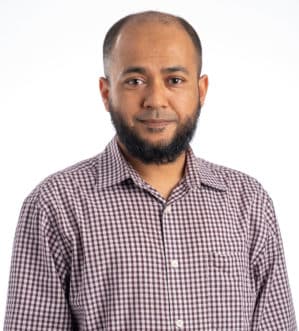Neuro-oncologist specializing in brain and spine cancer
Dr. Horta earned her medical degree at the University of Sao Paulo in Brazil, where she also served a residency in neurology and completed a clinical fellowship in neuro-immunology. She completed a fellowship in research at the Neuro-immunology Laboratory at the Mayo Clinic in Rochester, MN, and a clinical fellowship in neuro-oncology at Henry Ford Hospital in Detroit. Horta also served a residency in neurology at the University of Minnesota in Minneapolis. She joined UAMS in 2020 as a neuro-oncologist and has since built UAMS’ neuro-oncology practice.
Q. What is your relationship to cancer?
A. I think neuro-oncology chose me. Going back to my first residency, I took care of many more patients that were in the neurology ward because a tumor was causing their symptoms. In my second residency, the cases that caught my attention were neuro-oncology ones. Also, people close to me had brain tumors, and this gives me another perspective.
Q. When did you first become involved in cancer research?
A. I first got involved in cancer research in 2011 at the Mayo Clinic when I was working with paraneoplastic diseases that cause neurological problems because of cancer in the patient’s body. In the attempt to fight cancer, the immune system sometimes gets confused and starts to attach to the brain, spinal cord or the nerves of the patient.
Q. What do you hope to contribute to the Cancer Institute at UAMS?
A. I hope to contribute so much to the UAMS Cancer Institute. When I came to UAMS, we had to first build the neuro-oncology service. We are now bringing pharmacological clinical trials to patients with brain tumors at UAMS. We are also trying to better understand the impact on cognition that many cancers bring to patients, and how we can develop ways to identify and follow it. A brain tumor diagnosis can impact the patient and family so much, causing depression and anxiety that not only bring worse quality of life, but also impacts survival. This is another topic of study; how can we detect those mood disorders and how can we act upon it.
I am also seeing patients with neurofibromatosis and tuberous sclerosis. Those diseases can cause tumors and cancer in many parts of the body, but mainly the brain, spinal cord and nerves. We are trying to develop a Neurofibromatosis Multidisciplinary Clinic and bring clinical trials for those patients. Also, brain tumors in patients with tuberous sclerosis can be treated with an FDA-approved oral medication, and we are bringing this option to our patients.

